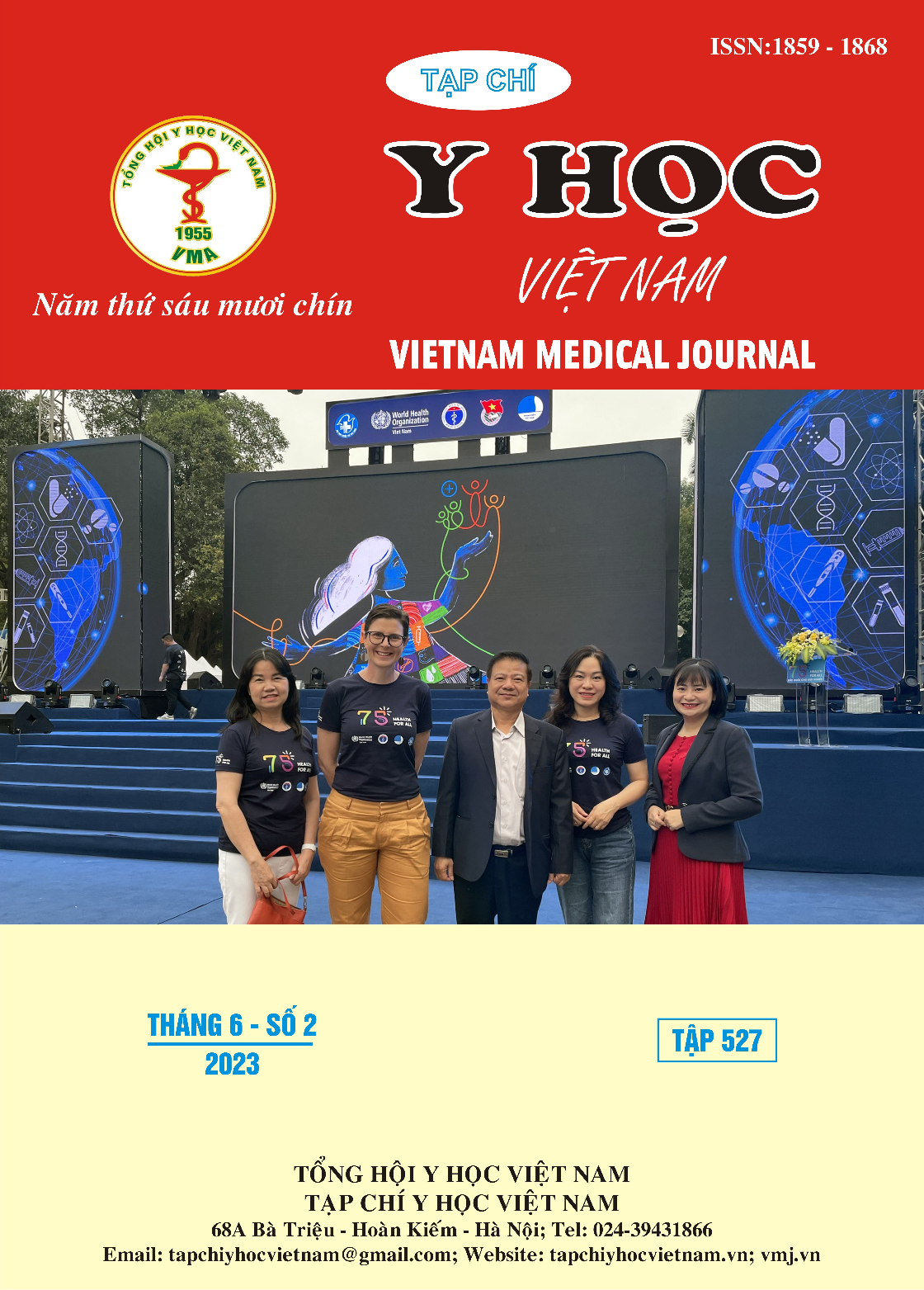CHẨN ĐOÁN DI TRUYỀN TIỀN LÀM TỔ VÀ CHẨN ĐOÁN TRƯỚC SINH BỆNH POMPE Nguyễn Thanh Tùng1, Triệu
Nội dung chính của bài viết
Tóm tắt
Bệnh Pompe (OMIM # 232300) hay bệnh dự trữ glycogen loại 2 (GSD-II) là bệnh di truyền lặn đơn gen trên nhiễm sắc thể số 17, gây ra bởi đột biến gen GAA (17q25.3), chịu trách nhiệm mã hoá tổng hợp enzyme acid alpha glucosidase (GAA) - một enzyme tham gia vào quá trình chuyển hóa glycogen trong lysosome. Tại Việt Nam, việc điều trị Pompe đã có nhiều bước tiến mới, đặc biệt là liệu pháp enzym - phương pháp được đánh giá tốt và giúp cải thiện tình trạng bệnh hiệu quả. Bên cạnh đó, việc dự phòng bệnh hiện nay đã trở nên khả thi khi các kỹ thuật chẩn đoán di truyền tiền làm tổ và chẩn đoán trước sinh đang dần được áp dụng phổ biến tại Việt Nam, giúp cho những cặp vợ chồng mang gen bệnh có thể sinh con khoẻ mạnh, không mang gen bệnh. Mục tiêu: Báo cáo kết quả chẩn đoán di truyền tiền làm tổ và chẩn đoán trước sinh bệnh Pompe trên một ca lâm sàng. Đối tượng và phương pháp nghiên cứu: Phân tích trình tự gen tìm đột biến trên mẫu máu của bố, mẹ; mẫu phôi sinh thiết ngày 5 và mẫu ối, kết hợp phân tích di truyền liên kết. Kết quả: Chúng tôi đã chẩn đoán di truyền tiền làm tổ và chẩn đoán trước sinh thành công cho một cặp vợ chồng với tiền sử sinh con bị bệnh Pompe: một phôi bình thường không mang đột biến và một mẫu ối từ thai bị bệnh, mang cả hai đột biến GAA:c.1933G>C (p.Asp645His) và GAA:c.1843G>A (p.Gly615Arg). Thai phụ đã được tư vấn di truyền và được đình chỉ thai tại tuần 18. Các tư vấn cho lần mang thai tiếp theo cho cặp vợ chồng đã được thực hiện.
Chi tiết bài viết
Từ khóa
GAA, Bệnh Pompe
Tài liệu tham khảo
2. Taverna. S., Cammarata. G., Colomba. P. et al. (2020). Pompe disease: pathogenesis, molecular genetics and diagnosis. Aging (Albany NY), 12(15), 15856.
3. Flanagan. J. J., Rossi. B., Tang. K. et al. (2009). The pharmacological chaperone 1‐deoxynojirimycin increases the activity and lysosomal trafficking of multiple mutant forms of acid alpha‐glucosidase. Human mutation, 30(12), 1683-1692.
4. Lin. C. Y., Shieh. J. J. (1995). Identification of a de novo point mutation resulting in infantile form of Pompe′ s disease. Biochemical and biophysical research communications, 208(2), 886-893.
5. Vũ Chí Dũng, Nguyễn Ngọc Khánh (2021). Kiểu gen và kiểu hình của bệnh Pompe thể xuất hiện ở trẻ nhỏ tại Bệnh viện Nhi Trung ương. Tạp chí Y học Việt Nam, 498(2).
6. Mannisto. J. (2017). The effects of termination of pregnancy on future reproduction. Academic dissertation to be presented with the assent of the Doctoral Training Committee of Health and Biosciences of the University of Oulu for public defence in Auditorium, 4.


